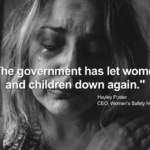Sydney Mobilises En Masse for the Women’s Justice March
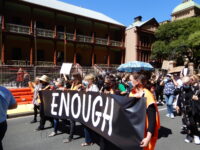
An estimated 10,000 protesters covered the Sydney Town Hall forecourt and surrounding areas at 12 pm on Monday afternoon to say “enough is enough”, in terms of sexual assault and gendered violence, and the dismissive attitude towards its occurrence that pervades Australian society.
The Sydney March for Justice was part of a national day of action that saw around 110,000 women and allies mobilise in 42 locations nationwide, calling for an end to gendered violence and the lack of equality and discrimination that underpins it.
The mass mobilisations have been sparked by multiple rape allegations coming out of Canberra, as well as the approach Coalition ministers have taken in dealing with them, which, for the most part, has consisted of attempting to sweep them under the carpet in full view of the public.
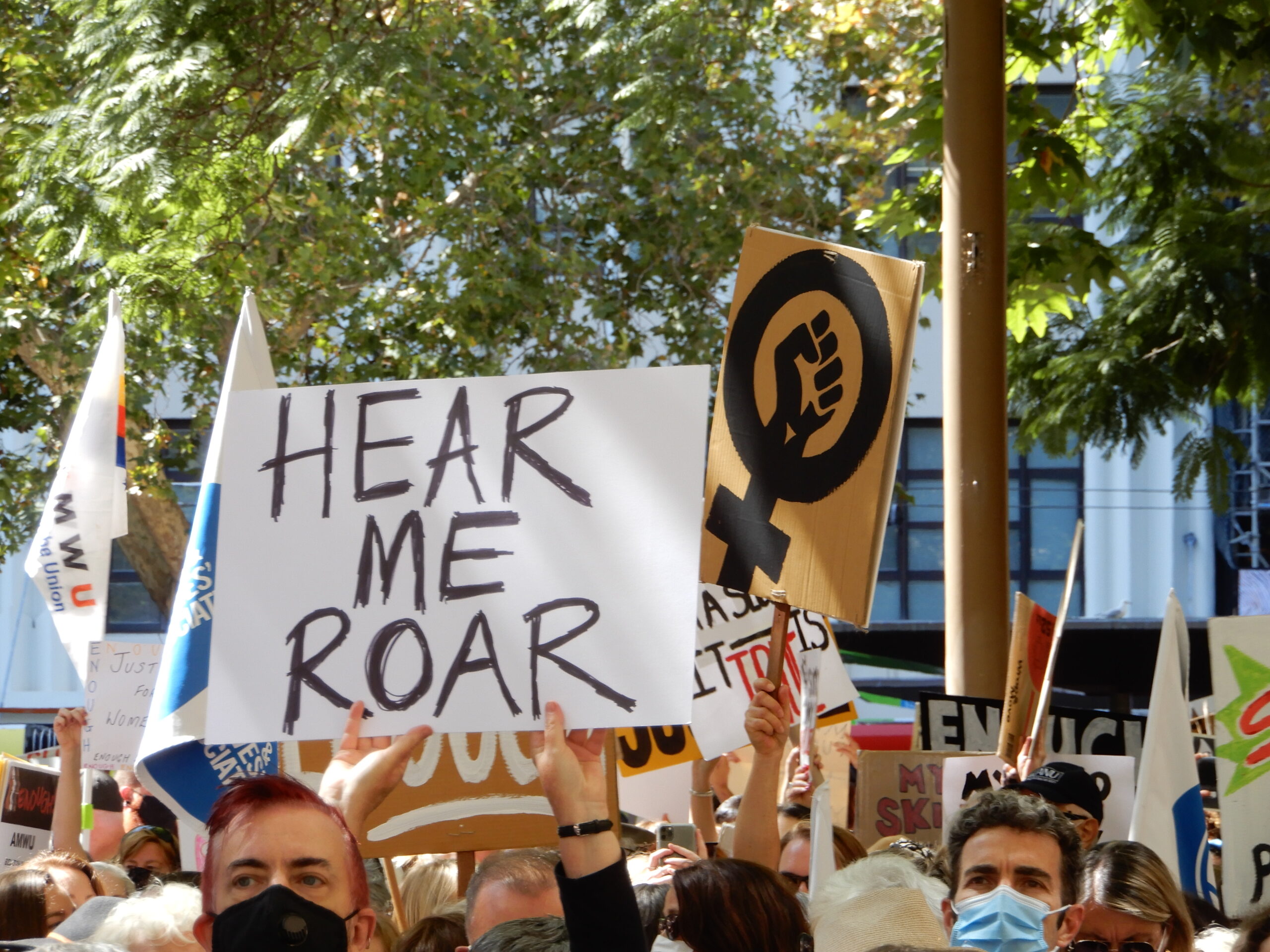
The alleged rape incident that Brittany Higgins raised, along with its fallout, exposed that women aren’t even safe from the threat of sexual violence in the nation’s seat of government. And her coming forward was prompted by what she saw as the PM’s hypocrisy in dealing with such matters.
This next stage in the women’s movement, however, is calling for justice reforms that extend much further that the Canberra bubble.
The women united
“I’m not proud of our society when we look the other way at violence against women,” said Australian Services Union secretary Natalie Lang, who MCed the rally at Town Hall.
“I am not proud of our political leaders and our commentators, who essentially turn their back and let the system be the apologist for the men who perpetrate violence, disrespect and the mistreatment of women.”
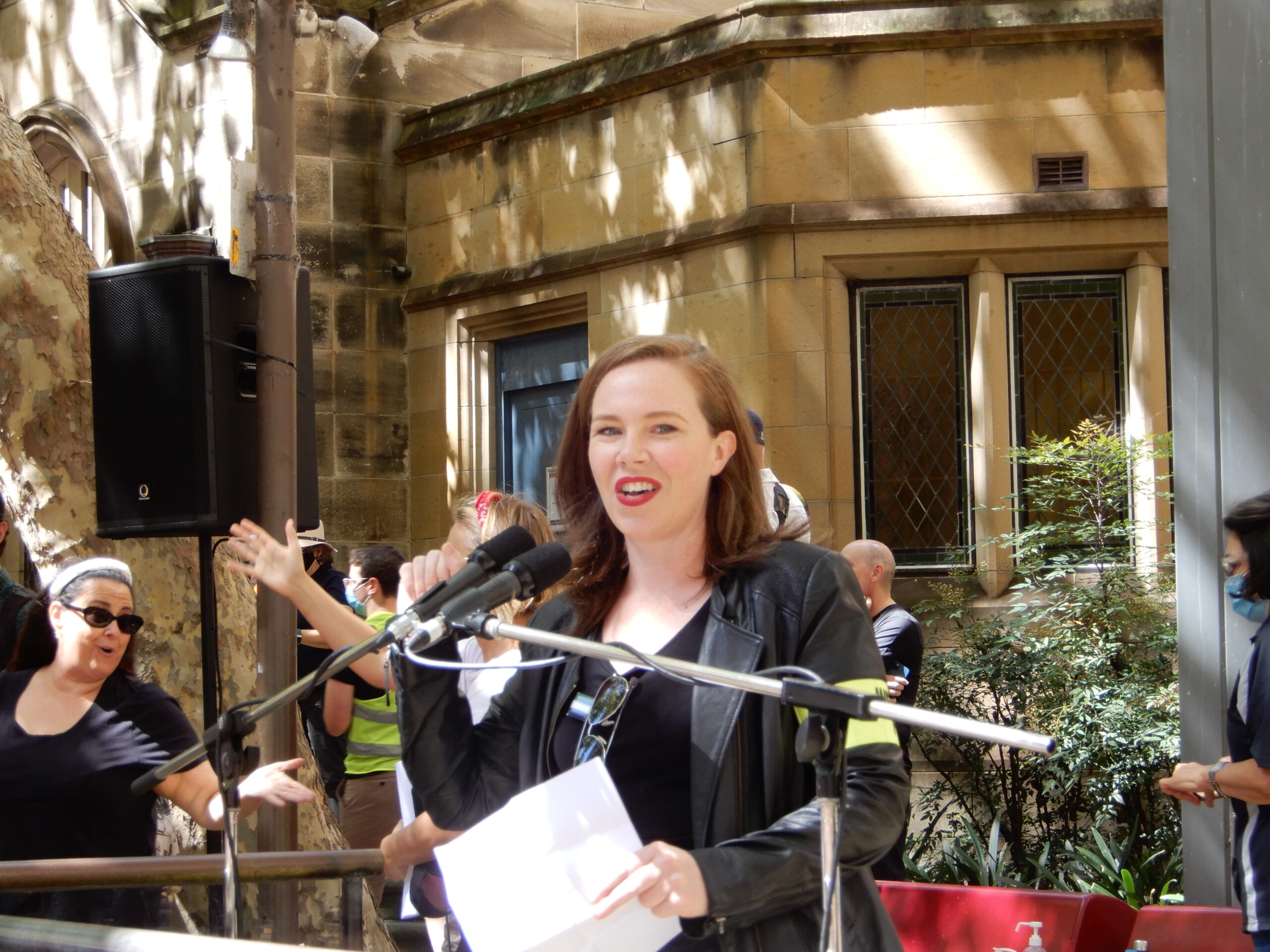
Just two days after the rally, the NSW Bureau of Crime Statistics and Research published a report outlining that while most major property and violent offence categories have either dropped or stabilised since 1990, the major anomaly is sexual assault, which is up by 230 percent.
BOCSAR also released the crime statistics relating to the December 2020 quarter. These reveal that over the 24 months prior, all major crime categories have declined or plateaued, bar one, which is sexual assault. This crime that overwhelming targets women rose by 10 percent year-on-year.
Lang added that women aren’t shocked by the revelations that have recently been emerging, as they’re well aware that their mistreatment is a problem of a system that permits violence, disrespect and disadvantage against them.
“The inequitable treatment of women in our society has gone on too long,” she added.
Enough is enough
Domestic violence is an issue that plagues the Australian suburbs. Police nationwide are called out to a domestic violence incident every two minutes or around 5,000 times a week. The ABS estimates that one in six women has experienced partner violence since the age of 15.
Renata Field, policy and research manager for Domestic Violence NSW (DVNSW), addressed the crowd once the thousands had marched through the Sydney CBD to come to a stop out the front of NSW Parliament House.
Field said her organisation asserts that First Nations women, all women and people from marginalised genders have “a right to live a life free from violence”. And she added that the statistics around gendered violence are just the tip of the iceberg in terms of the actual levels.
“These statistics are worse for women of colour, for transgender women, young women, women with disabilities and even older women in care. This is just atrocious,” Field continued. “I don’t know one of my friends who has not experienced sexual assault or violence. And I say shame.”
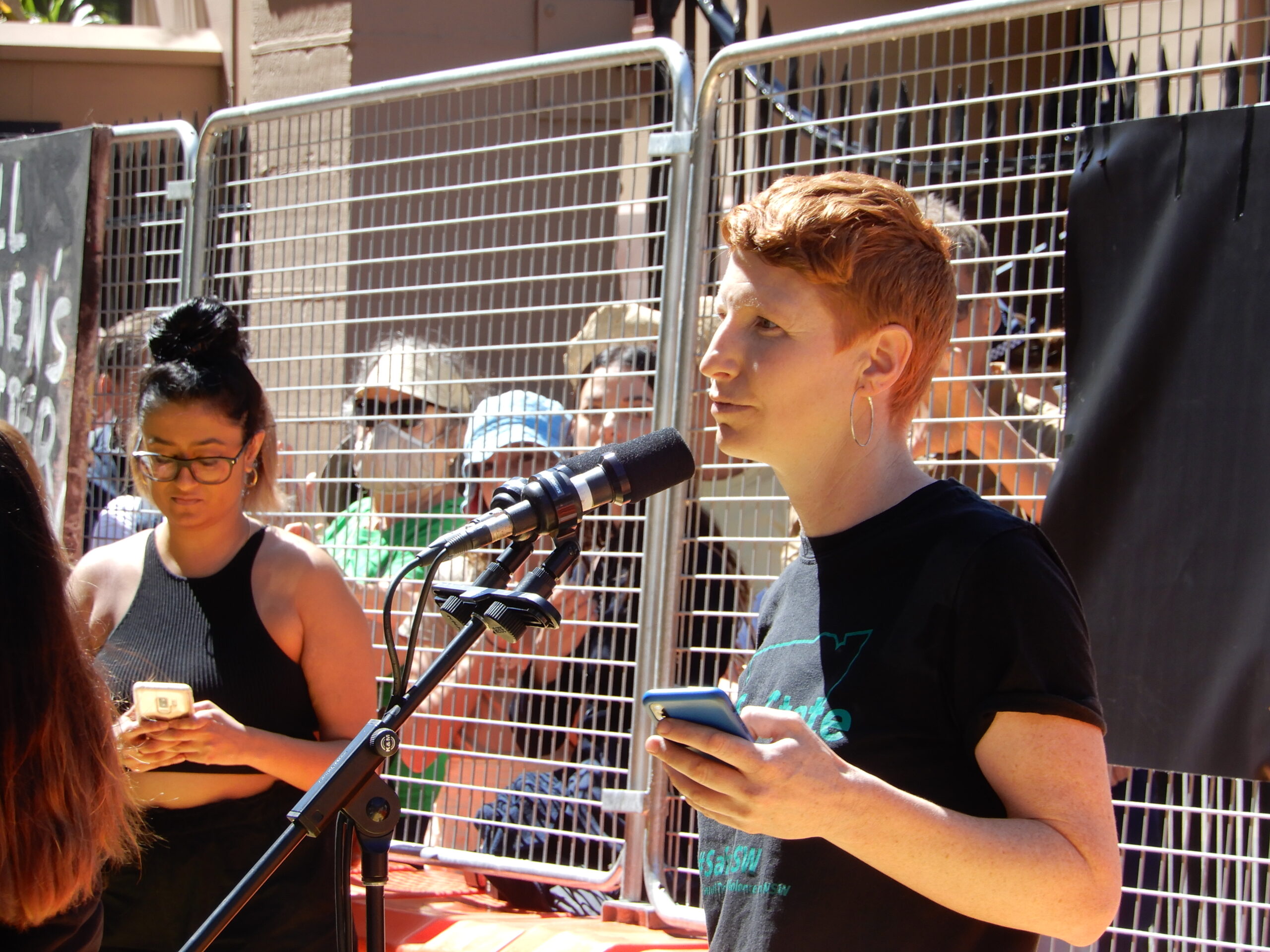
On the day following the event, Field told Sydney Criminal Lawyers that she considers the current movement the next step from #MeToo. And she’s expecting substantial reforms to be forthcoming in terms of stopping “the abuses that women and people from marginalised genders” experience.
No more
“If we’re going to challenge this toxic masculinity and the issues of bullying, harassment and sexual assault in our democracy, in our parliament and in our society, we will only do it if we all march together,” NSW Greens MP Jenny Leong said out the front of parliament.
“And we will only do it if we are uncompromising in our demands.”
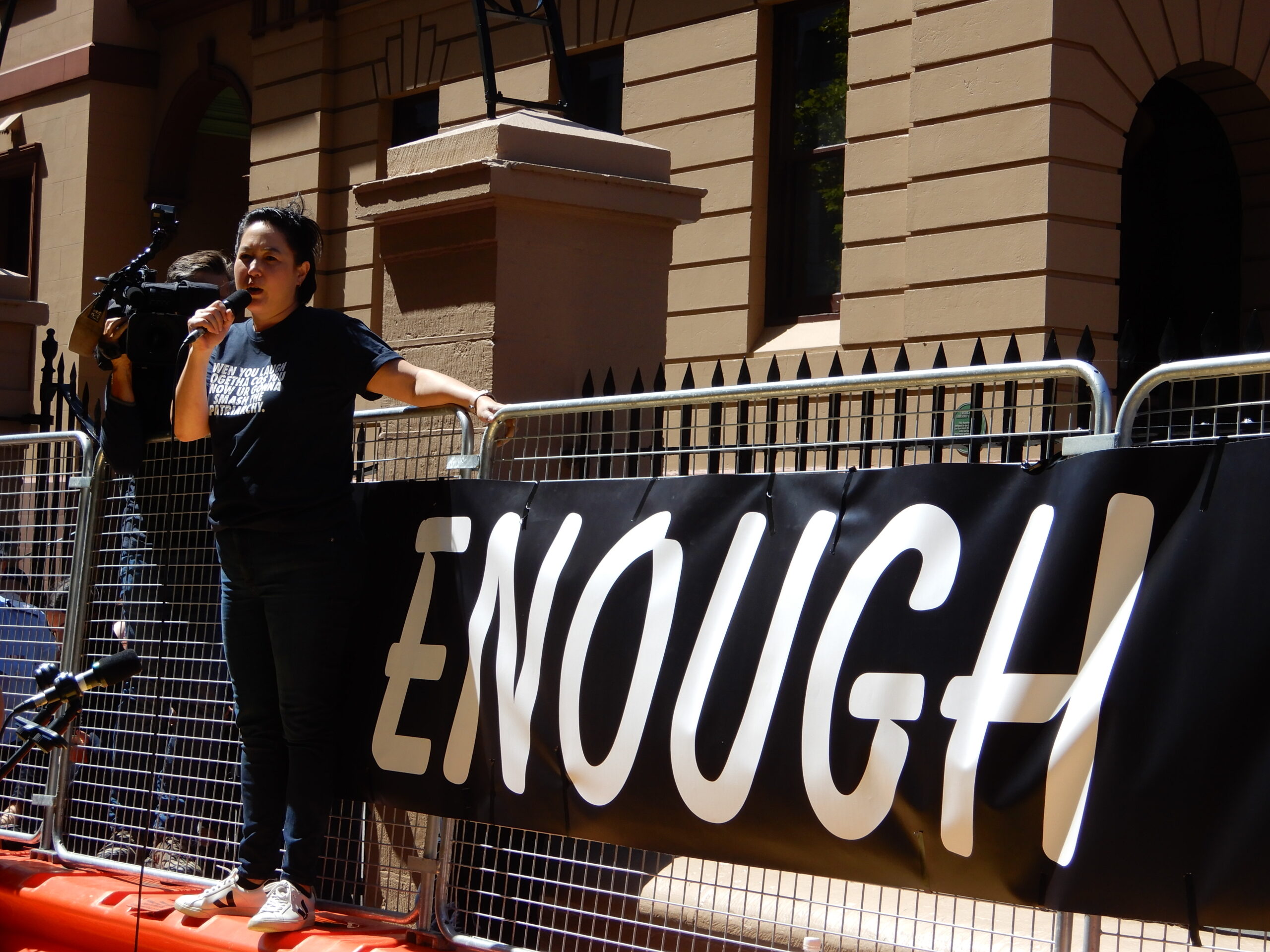
In keeping to her words, Leong gave notice the next day that she will be introducing the Crimes Amendment (Enthusiastic Consent) Bill into state parliament. This legislation will aim to sharpen definitions around consent and non-consent that she asserts currently prejudice victim-survivors.
Leong’s colleague NSW Greens MLC Abigail Boyd passed a motion uncontested on Wednesday calling on state parliament to implement sexual consent training and other measures that will ensure the NSW seat of government is a safe workplace for women.
“And finally I say this on behalf of us all, a message to Canberra, a message to the rape apologists, a message to the attorney general, we say get out of your jobs because it is time to stand aside,” Leong ended her speech. “We say no more.”







